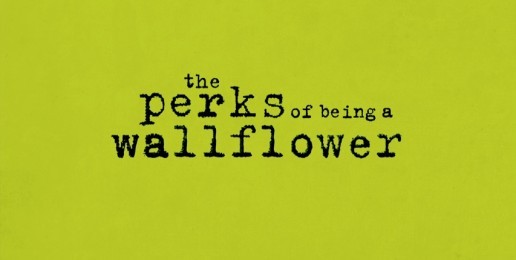
Here’s an email I received from a Christian public school teacher who defends the teaching in public schools of The Perks of Being a Wallflower, followed by my response:
I am a conservative, a church-attending Christian, a public school elementary teacher, and I read The Perks of Being a Wallflower four times when I was fourteen years old. I think you are incorrectly analyzing the book when you say that it tries to teach that children want to be isolated. It features a cast of outcasts, and the protagonist is an outcast, not by choice but out of fear, anxiety, and depression. Many of the topics that the IFI disapproves of are also generally disapproved of by the story as well. I think the important thing parents need to realize about this book and others like it is that the world we live in is not perfect. Kids in our society go through some pretty terrible things. It’s important that literature reflects life in order for anyone to read it and connect to it. We can censor a book, but that doesn’t change the things kids go through as they pass through adolescence into adulthood. We can’t change the world for the child. We have to prepare the child for the world. If parents feel they have not prepared their child enough to read a book in which things they disapprove of are depicted, what faith do they have in themselves or their children? What is going to happen when their kids go to high school, college, adulthood? Eighth graders are old enough and intelligent enough to know that the story disapproves of Charlie’s childhood best friend’s suicide, and of the non-consensual incestuous molestation of Charlie as a child by his mentally unstable aunt. They are wise enough to understand that these events have hurt Charlie so much that he requires hospitalization at the end of the novel, because Charlie is, like they are, an adolescent, and requires help from adults to get better. It is impossible to read this book and see the drug use, the drinking, the violence, and the sex as things that make Charlie any happier. These are all things he (and his friends) use to escape their real problems. It does not work. For any of them. This brings up so many discussion points that parents and teachers can use to talk to their students.
Perks made me feel like I wasn’t alone in the way I felt. It taught me that even in the worst circumstances, friendship provides a saving grace. I think those are powerful lessons that are covered in a well-written, honest book. I also think teaching Perks opens up an opportunity for dialogue between students and their parents, and between students and their teachers. When a book is covered in school, the teacher is there to help the students glean meaning from the text. When students read it on their own (as is inevitable when books are censored), it becomes something secretive, something they can’t talk about, and for parents, that is much, much worse.
Hi *****,
By way of introduction, I want to share that until August of 2008, I worked full-time in the writing center at Deerfield High School, where I was a member of the English Department.
- You misread my sentence. I said that no child wants to be isolated, and that Perks tries unsuccessfully to teach that point. I said that Perks is unsuccessful because students who were defending the book at Hadley were ironically bullying the daughter of some of the parents who are objecting to it.
- I am troubled by your use of the word “censor.” As I wrote in my first article, when teachers decide that a book is “age-inappropriate” and choose not to teach it, they call it “text-selection.” When conservatives decide that a book is age-inappropriate or school-inappropriate, teachers call it censorship.
- If you think every book that isn’t taught is “censored,” then I guess Angels in America is “censored” in most schools. And since it’s “censored,” I guess students are going to “read it on their own,” and it’s going to become “something secretive” that “they can’t talk about,” which “is much, much worse.” By your reasoning, there is no book that is inappropriate in public schools.
- No parent thinks the world is perfect, but it is not the job of English teachers to expose their children to every ugly phenomenon that exists. Neither is it the job of English teachers to try to solve the emotional and social problems of teens. English teachers are not experts in those areas, and the classroom is not the place to do it. I would argue that many English teachers are not even experts in the area which they were hired to teach.
- When you say that “we have to prepare the child for the world,” are you actually arguing that it’s the role of English teachers to “prepare” kids for the ugliest sexual experiences that children may encounter? That’s a remarkable assertion for a teacher to make. Who said that’s the role of an English teacher? In what specific ways are teachers “preparing” students by teaching Perks? And if you think it’s the role of English teachers to “prepare” kids for the possible experience of being ostracized –which I would still argue is not their job — why not choose a book that portrays social ostracism in a less controversial way since these teachers are being subsidized by taxpayers?
- Some fourteen year-olds may be aware of bestiality and masturbation with food items, but many kids have never been introduced to such ideas and images, and parents shouldn’t have to worry that their public school teachers are going to expose them to such perversity.
- Many parents, me included, do not want my children discussing incest, rape, homosexuality, premarital sex, bestiality, or masturbation with their teachers or their classroom peers. Having such discussions in school contexts undermines modesty (not to be confused with prudery), which is a virtue all too rare in our culture. Our public schools do nothing to cultivate a sense of modesty and discretion in our students, and many English teachers contribute to an erosion of modesty by teaching books like Perks.
- I never argued that Perks promotes as positive any of the social ills you mentioned. I am arguing that the obscene language contributes to the desensitization to obscene language that is becoming commonplace. I would argue further that when schools teach such texts, they legitimize the use of such language.
- To be effective English teachers does not require the teaching of texts about the most dysfunctional, deviant, and evil of life’s experiences, or texts that use the most obscene language, or texts that include graphic sexuality.
- You seem to think that the age and intelligence of students is the primary arbiter of whether a particular book should be taught. Did you ever consider that some kids who have been molested might be upset by reading Perks? Did you ever consider that the majority of students have not been molested, and now you’ve exposed them to a compelling narrative that introduces potentially disturbing images to them?
- Have you considered that some teens may find the sexual scenes arousing? If so, is that problematic? Should government employees be using taxpayer funds to present books with pornographic imagery to other people’s children?
- I find it a presumptuous to suggest that parents who are struggling valiantly to limit their children’s exposure to obscene language and graphic sexuality in order to protect their imaginations and moral compasses while they’re still developing have no “faith” in their kids. The issue of faith in their children is wholly irrelevant. The issue is that words and ideas matter, and adolescents are not adults. They lack both emotional and moral maturity.
- English teachers more than any others should know that language matters, ideas matter, stories matter. They have the power to shape views and elicit powerful feelings. Perks depicts ugliness and deviance using ugly language.
- While you defend Perks for its disapproval of incest and molestation, you don’t mention its treatment of premarital sex and homosexuality? How are those two phenomena presented in the book? Does Perks make a case that volitional homosexual acts and fornication are inherently immoral?
- You pointed out what good you derived from Perks as justification for its curricular inclusion. As I have argued many times, for teachers who see themselves as “agents of change,” the beauty of teaching English is that they can defend teaching virtually any text they want to teach because the criteria used to defend texts are almost infinitely elastic. English teachers can say that kids relate to it, that it reflects their lived reality, that it includes “authentic adolescent language,” that it ties thematically to another text they’re teaching, that the author’s tone or use of metaphorical language are particularly effective, and on and on ad nauseum. No one is arguing that Perks is devoid of any value. Many are arguing, however, that the obscene language and graphic and deviant sexuality make it unsuitable for use in publicly funded schools. Those parents who want their children to read it are free to purchase it for their children at their own expense. Kids can purchase it or check it out from the library. They can do that because, even if schools choose not to purchase or teach it, the book has not been censored.
- Do you actually believe that teachers today are more effective, better English teachers than were teachers forty or fifty years ago when a book like Perks would never have been taught? Do you think today’s English teachers are better at teaching poetry, grammar, and analytical writing? Do you think that as a group, public school English teachers today are better readers of difficult literature? I would argue that as English teachers have presumptuously expanded their roles to include transforming the emotions, morality, and politics of children, they have become—for the most part—worse at teaching literature and writing.
- It would behoove English teachers to examine closely their unexamined assumptions about what their proper role is as an English teacher in general, and particularly in publicly funded schools.
I hope you get a chance to read all three of these:
Correction and Request Regarding Hadley Middle School

























